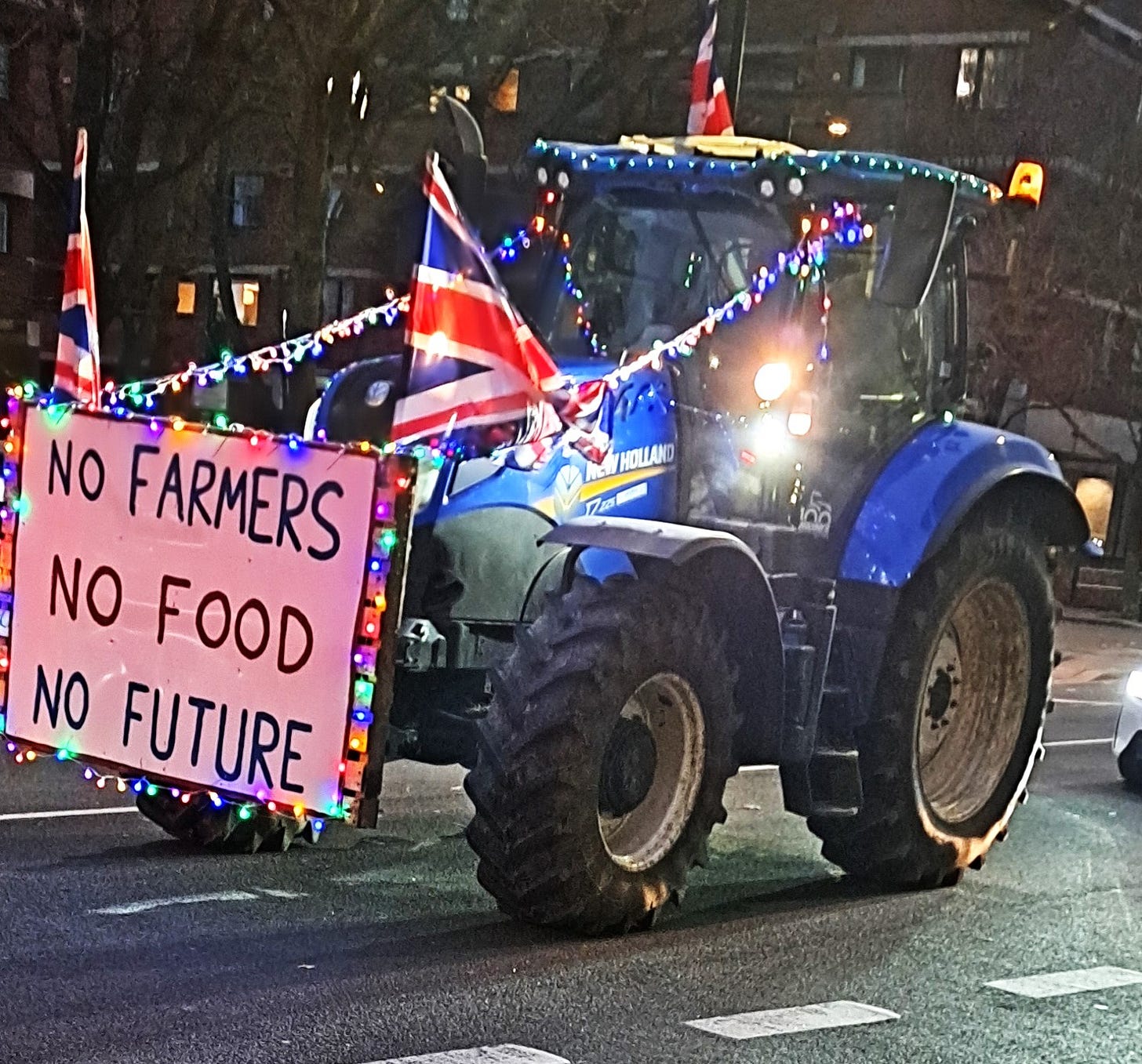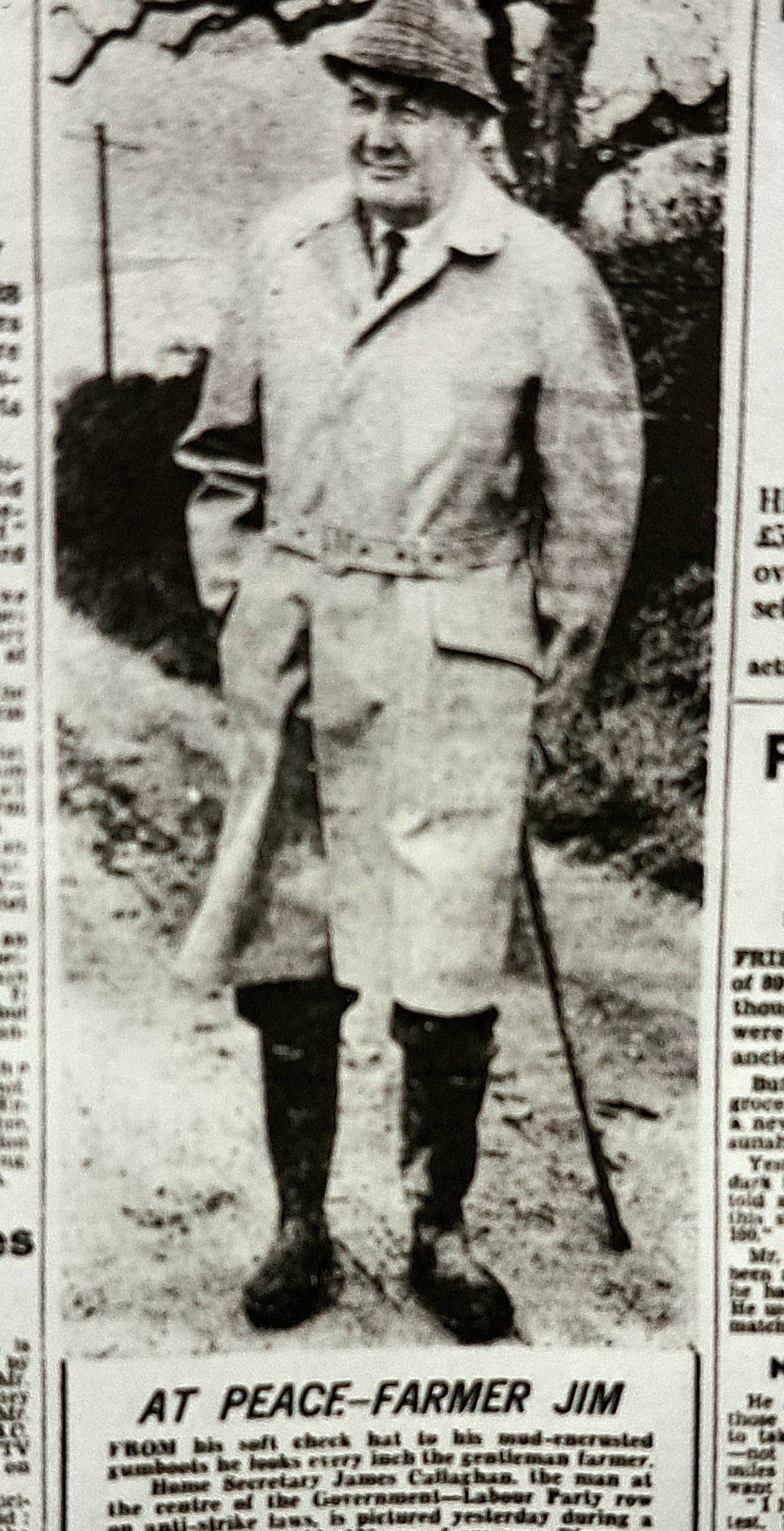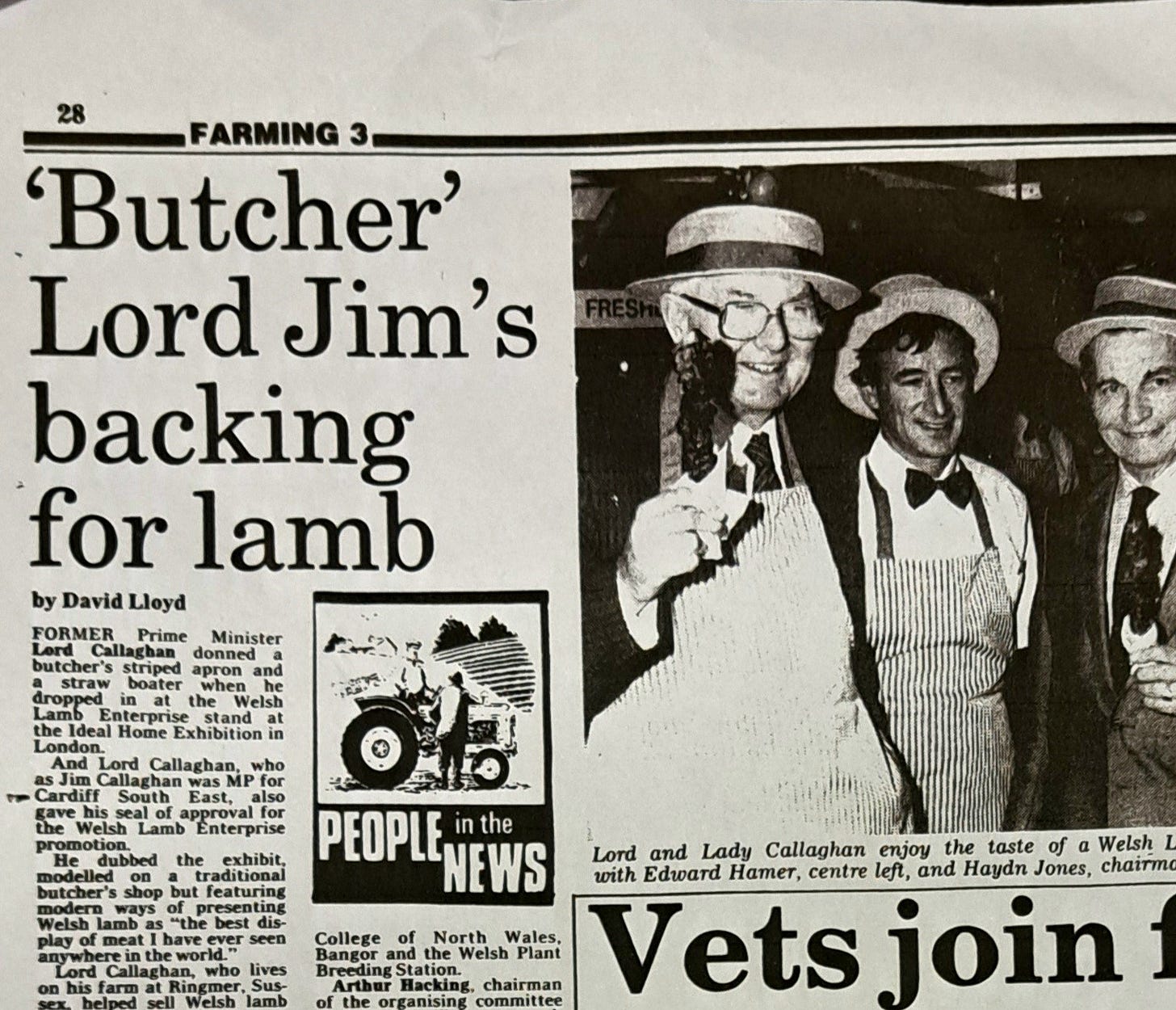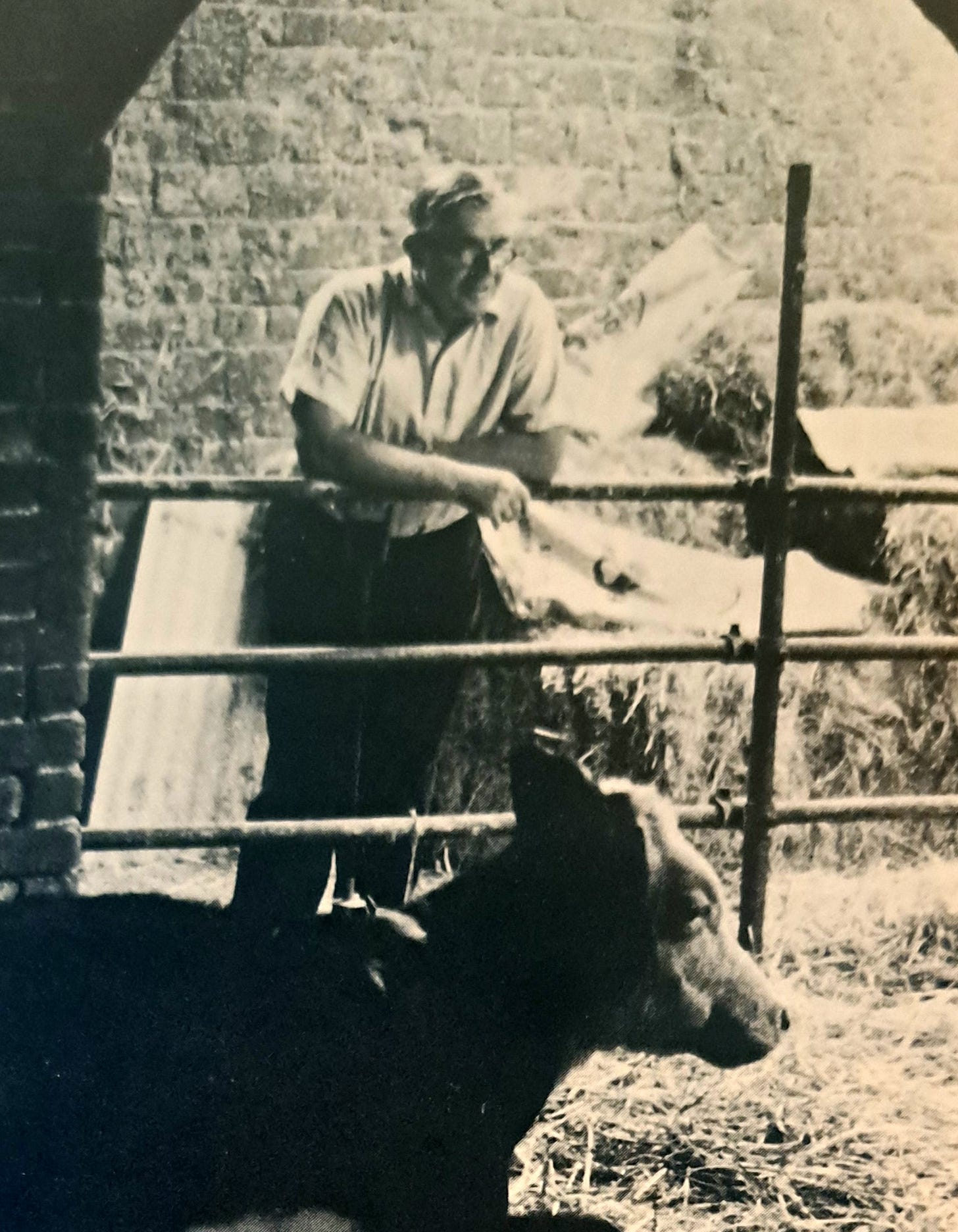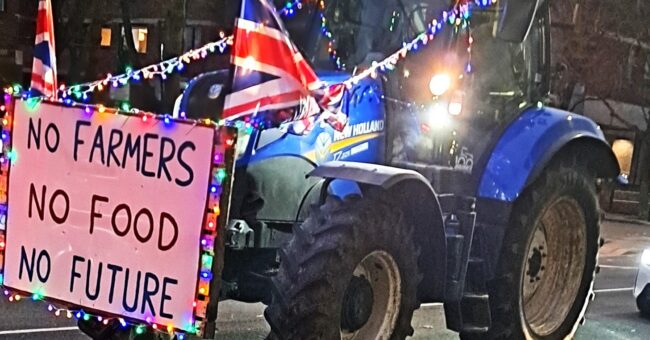
Quite why Britain’s first Labour government for 14 years has chosen to use its powerful Parliamentary majority to pick fights with pensioners, small businesses and farming families, may remain a mystery until the inevitable political autobiographies of Starmer and Reeves appear in years to come. But it’s pretty clear that there’s nobody rooting for any of those groups in the Cabinet, which certainly wouldn’t have been the case in Labour’s 1960s heyday.
Some of the least-likely Labour mandarins took up farming in their latter years, although most of them were a bit shy of discussing it with political journalists. Would you have pictured Nye Bevan – father of the NHS and son of the Welsh mining valleys – and his firebrand wife Jennie Lee out in their wellies herding cows?
Or could you see Richard Crossman – Oxford don and Socialist intellectual – heading off from the political soirees of Westminster to a magnificent Oxfordshire manor house and farm to check the milk yield of his 170 dairy herd?
And perhaps the most senior Labour politician of his era, Jim Callaghan – the only politician of his generation to hold the four great offices of state? He was so involved in his farming life that he once ducked out of an audience with the Queen because of a prior agricultural commitment at his successful Sussex farm.
None of these people started out as sons of the soil – but they all fell heavily for the farming life. Not that you have heard much about it. They avoided the subject in media interviews and the compliant Press pack of the time generally left them alone to their pastoral pursuits.
Tony Benn was probably the only inheritor of a farm, but for farmers Jim, Nye and Dick it was very much a choice and often became a passion.
In July 1954 Aneurin Bevan and Jennie Lee sold their house in Chelsea. They wanted a place near London but in the country. Bevan was tipped off about the chance to buy Asheridge Farm, in rural Buckinghamshire by a local farmer, Tony Harman, who was an unusual character in that he was both a farmer and a strong Socialist and had met Bevan while trying to stand as a Labour parliamentary candidate.
Harman recalled much later in an autobiography of his years in farming – Seventy Summers – how Bevan told him he fancied buying a farm in the Home Counties and asked Tony to look out for one. After viewing several and rejecting them (at one, Nye delivered a blistering lecture on woodland management to the astonished seller) he eventually settled on a 50 acre spread near Chesham.
The old farmhouse came with farm buildings, and two cottages. There was a cowman, whom the Bevans kept on, a Guernsey cow herd, and 60 hens. Nye bought it for £9,000. Jennie got central heating installed, and converted an adjacent barn into a guesthouse for visitors
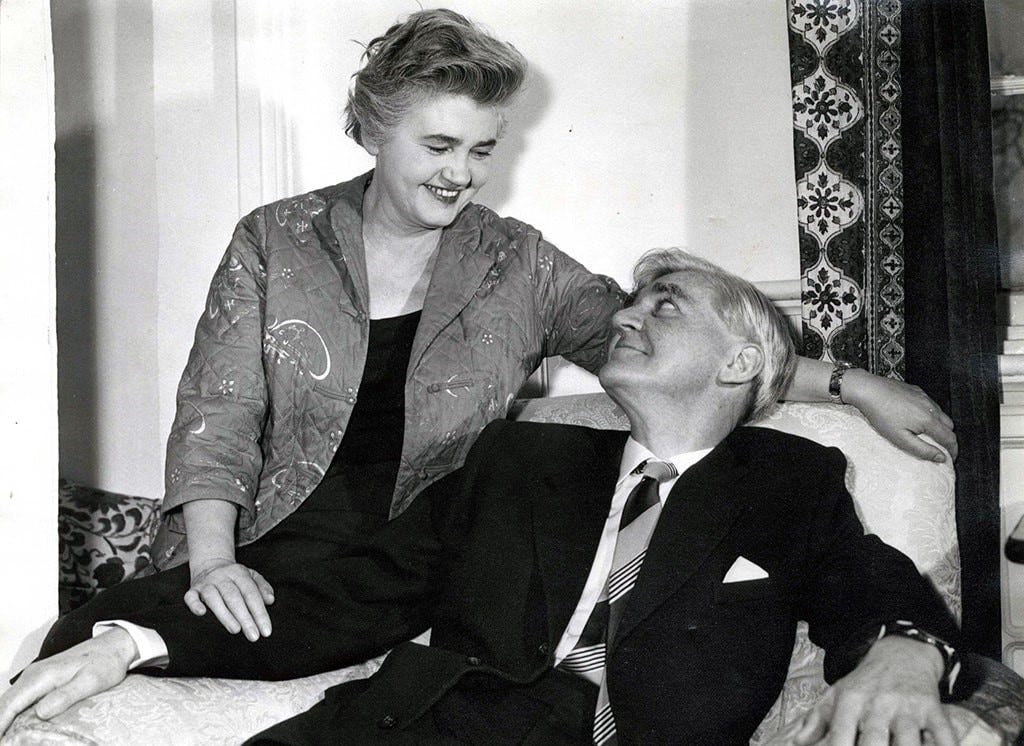
Nye became an enthusiastic farmer. He built up the herd to 60 cattle, and also started to keep pigs. Asheridge became a popular weekend retreat for fellow politicians and other Bevan friends, such as Lord Sieff, Chairman of Marks and Spencer. The Bevans even entertained the Prime Minister of India, who swept into the farmyard in his white Mercedes limousine to visit his political allies and great friends while on an official visit to the UK.
Bevan showed an unexpected fervour for business, which left Harman surprised and shame-faced. Once Harman confided to Bevan that he had the opportunity to expand his farm by leasing a second holding, but he wasn’t interested in taking the risk. Bevan upbraided him in astonishing terms: “Why are you so unenterprising? What’s the good of an entrepreneur without any enterprise?” he exploded and went on: “Under our system people running businesses have got to expand – that’s the only way it works.”
Quizzed further, Harman confessed he hadn’t even been to his bank manager to enquire about a loan. Bevan was mocking: “Here’s a man who won’t do something he knows he ought to do because the bank manager won’t give him a loan he hasn’t asked for!” Days later, after some thought, Harman went to the Westminster Bank in Chesham to discover Bevan had been there before him. “A distinguished visitor has been here and told me that if I don’t give you a loan I don’t know my job as a bank manager – so I’d better listen to what you say,” the Manager said. Harman got his loan.
Bevan also practised the entrepreneurship he preached. Just days before he died at the farm (of stomach cancer) he had been negotiating to buy more fields for Asheridge.
After Nye’s death in 1960 Jennie Lee remained at the farm until 1968, and when she was given a Peerage after losing her Parliamentary seat in 1970, she chose the name Baroness Lee of Asheridge, in tribute to her time there with Nye.
A Prime Minister in gum-boots
The trail Bevan laid was later followed by another distinguished Labour man, Jim Callaghan, and his commitment to farming was even more fervent and public than Nye’s.
An Inland Revenue clerk and trade unionist, Callaghan was promoted from the lower decks to become a Royal Navy officer during WW2 and subsequently served in all the great offices of State after he was elected an MP.
But while his political career was still in full swing, Callaghan quietly acquired a reasonably substantial dairy and arable farm in Ringmer, Sussex, which became his family home. Buying the house and 138 acres in 1968, the family established a comfortable country life when away from Westminster.
Upper Clayhill Farm was 300 years old and substantial – six bedrooms in the main house plus extensive dairy buildings and barns. In addition to the cows Callaghan grew more than 80 acres of crops. He bought the farm with a loan from the Agricultural Mortgage Corporation, a subsidiary of Lloyds Bank, for a price believed to be around £30,000. It was a sound business decision by the former Chancellor of the Exchequer, since it was put up for sale on his death for £1.5 million – probably £5 million plus today and certainly a sum which would fall into the family farming tax net of today’s Chancellor.
The biggest spread farmed by a Labour minister, must have been Prescote Manor, near Banbury – a significant agricultural holding which came the way of Housing Minister Richard Crossman through his third marriage to Anne McDougall. Anne’s father was a wealthy auctioneer, owner of the biggest cattle market in Britain and one of the biggest in Europe at Banbury, Oxfordshire.
When Crossman – better known to the public as Dick – married Anne as his third wife, Patrick McDougall gave them his manor house and 360 acres as a wedding present. To the London politicos, Crossman liked to appear a reluctant countryman and made jokes about his inability as a farmer. But Oxfordshire locals knew the real truth – Crossman was entranced by the farming life and his role as a Lord of the Manor.
Best managed farm in Oxfordshire
A full page article in the local evening paper of 1964 was headlined: “The OTHER Mr Crossman – go-ahead farmer”. And go-ahead he clearly was, as the article was timed to announce the crowning of Prestcote Manor (now expanded to 510 acres when Crossman snapped up some adjoining land) as the “best managed farm in Oxfordshire”.
To be fair Crossman never claimed to be a wellington-booted son of the soil. But he certainly took the credit for the farm’s success, as its visionary and business brain. The grubby interactions with cows, sheep and crops he left to his manager Dennis Pritchett. “The first thing I did was appoint him when I took over the farm 10 years ago,” Crossman told the Coventry Telegraph reporter. “I can run the finances but I have never driven a tractor in my life.”
What TV’s Jeremy Clarkson is doing today, Crossman did 60 years before. He bought the most up-to-date machinery, built new cattle sheds and constructed a new access road and then sank all his spare capital into buying an extra 150 acres to give the business the scale he felt it needed.
There was none of the buffoonery which Clarkson pretends and the results were very different than at TV’s Diddly Squat Farm. Prescote soon had a 170 herd of cows, and Crossman knew the milk yield of every one. It produced 200 acres of wheat each year and Crossman sent Dennis Pritchett abroad to find the best farming practices. From Denmark he adopted innovative new building designs, but in Soviet Russia the collective farms were “ghastly” said the Socialist minister.
Dick Crossman wasn’t exactly a poacher-turned-gamekeeper and he made sure his political beliefs influenced how his six workers lived. He boasted they all had homes with “first class amenities” and were in a pension scheme. Crossman also introduced a profit-sharing scheme.
Quite what he would have made of the current row between farming families and the Labour Government over the so-called “family farm tax” we will never know. But we do know that – like hundreds of farmers across the UK – Crossman was setting the business up to be inherited by his son Patrick at the time of the newspaper article. He told the reporter his son “would be master of Prescote” after him.
That prophesy never came true. Crossman met an early death in 1974, when his son was only a teenager and sadly the boy died less than a year later.
For more on Richard Crossman and his wife Anne, I recommend piece
